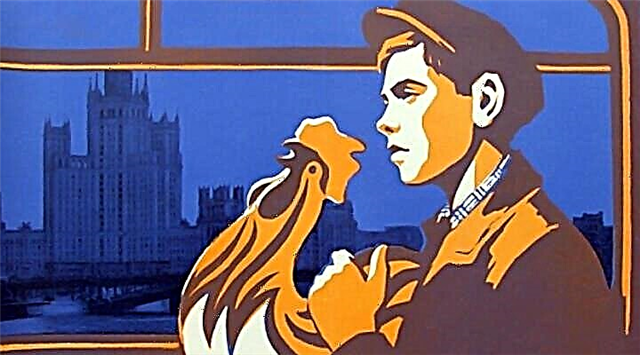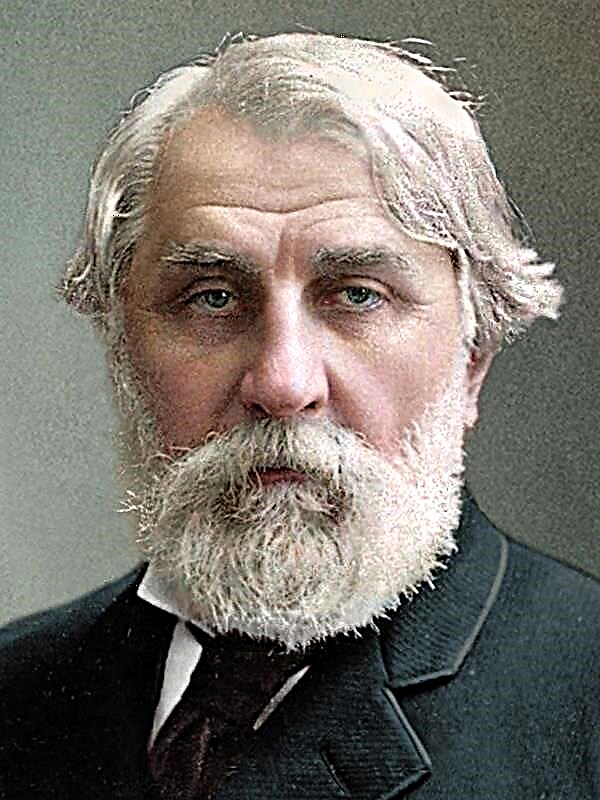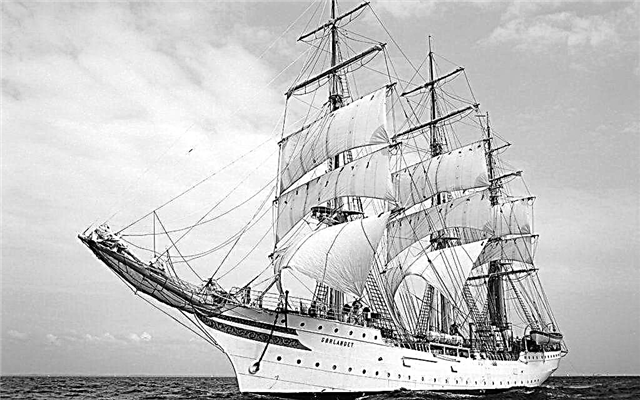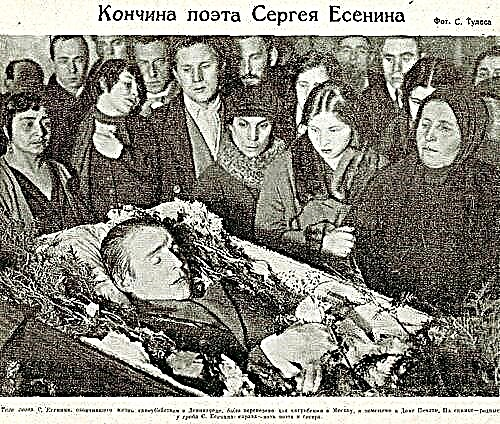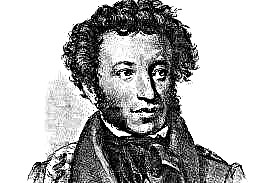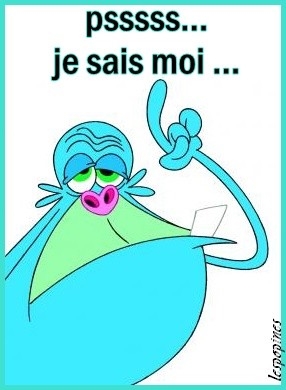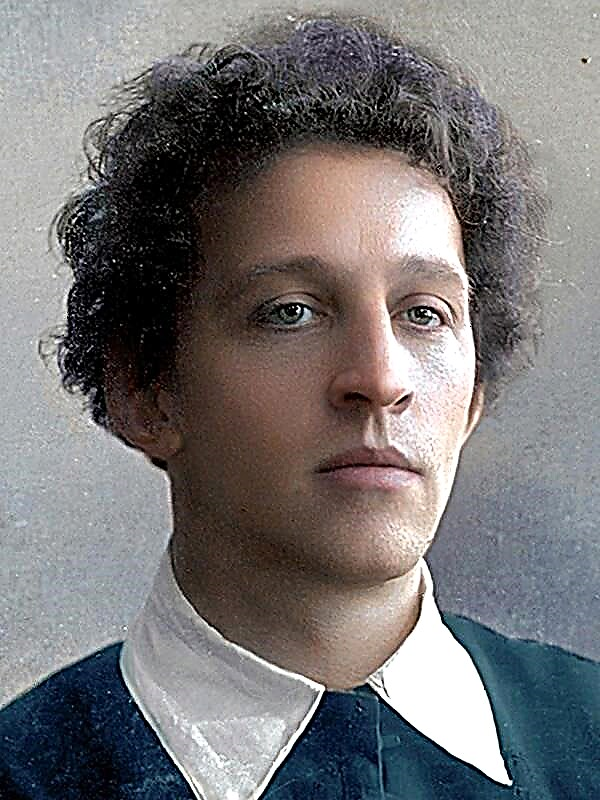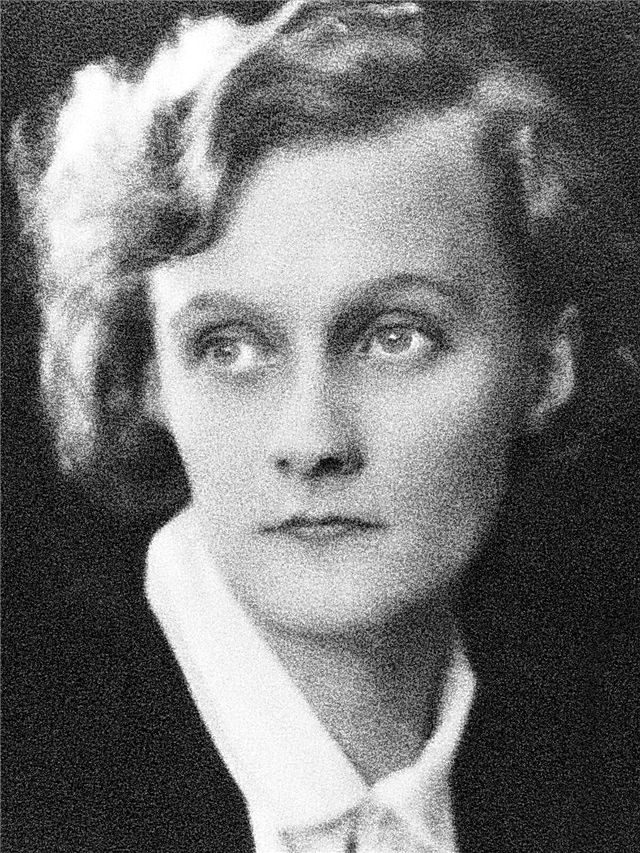The action takes place in the provincial Swiss town of Güllen in the 50s. XX century Clara Tsahanassian, an old multimillionaire, nee Wesher, a former resident of Gyullen, comes to the town. Once, several industrial enterprises worked in the town, but one after another they went bankrupt, and the town fell into complete desolation, and its inhabitants became impoverished. The inhabitants of Güllen have high hopes for the arrival of Clara. They expect that she will leave her hometown several million to update it. To “process” a guest, to arouse nostalgia for her in the past, when she spent in Güllen, the city's residents trust the sixty-year-old grocer Ill, with whom Clara had an affair in her youth.
To get off in a city where trains rarely stop, Klara breaks off the stopcock and appears in front of residents surrounded by a whole retinue of her close associates, consisting of her seventh husband, a butler, two thugs, chewing gum all the time and carrying her palanquin, maids and two blind men Kobe and Lobi. She does not have her left leg, which she lost in a car accident, and her right arm, lost in a plane crash. Both of these body parts replace first-class dentures. It is followed by luggage, consisting of a huge number of suitcases, a cage with a black leopard and a coffin. Clara shows interest in the policeman, curious whether he can close his eyes to what is happening in the city, and the priest, asking him if he will absolve the sins of those sentenced to death. To his answer that the death penalty has been abolished in the country, Klara expresses the opinion that she will probably have to enter it again, which plunges the inhabitants of Güllen in perplexity.
Clara decides with Ill to go around all those places where their passion once seethed: Peter shed, Konradov forest. Then they kissed and loved each other, and then Ill married Matilda Blumhard, more precisely, at her dairy shop, and Clara married Tsakhanassyan, for his billions. He found her in a hamburg brothel. Clara smokes. Ill dreams of the return of bygone days and asks Clara to help her hometown financially, which she promises to do.
They return from the forest to the city. At a festive dinner hosted by the burgomaster, Klara announces that she will give Guillen a billion: five hundred million to the city and five hundred million will be divided equally among all residents, but on one condition - subject to the completion of justice.
She asks her butler to step forward, and residents recognize him as District Judge Hofer, who forty-five years ago was the judge of the city of Gulen. He reminds them of the trial that took place in those days, Klara Wesher, as Mrs. Tsakhanassyan was called before her marriage, was expecting a child from Ill. However, he brought two false witnesses to the court, who for a liter of vodka showed that they also slept with Clara, so that the father of the child expected by Clara is supposedly not necessarily Illa. Clara was kicked out of the city, she ended up in a brothel, and a child, a girl born to her, died a year after being born in the arms of strangers, in an orphanage in which, according to the law, she was placed.
Then Clara vowed that she would someday return to Gullen and avenge herself. Having become rich, she ordered to search for those false witnesses, who, according to them, were her lovers, and ordered her thugs to scatter and blind them. Since then, they live next to her.
Clara demands that justice be done at last. She promises that the city will receive a billion if someone kills Illa. The burgomaster, with dignity on behalf of all the citizens, declares that the inhabitants of Gulen are Christians and, in the name of humanism, reject her proposal. Better to be paupers than executioners. Clara says she is ready to wait.
At the Golden Apostle Hotel, in a separate room, stands the coffin brought by Clara. Her thugs are worn daily from the station to the hotel with more and more mourning wreaths and bouquets.
Two women enter the Illa store and ask them to sell them milk, butter, white bread and chocolate. They never allowed themselves such luxury. And they want to get all this on credit. The following customers are asked to give them cognac and the best tobacco, and also on credit. Ill begins to see clearly and, terribly worried, asks how they are all going to pay.
Meanwhile, a black leopard escapes from Clara’s cage, which has already managed to change her seventh husband to an eighth, a film actor. I must say that in her youth, Illa, she also called "his black leopard." All Güllen residents take precautionary measures and walk around the city with weapons. The atmosphere in the city is heating up. Ill feels cornered. He goes to the policeman, to the burgomaster, to the priest and asks them to protect him, and to arrest Klara Tsakhanassyan for incitement to murder. All three advise him not to take what happened to heart, because none of the residents took the billionaire’s offer seriously and is not going to kill him. Ill, however, notices that the policeman also has new boots and a gold tooth in his mouth. The burgomaster flaunts in a new tie. More is more: the townspeople are starting to buy washing machines, televisions, and cars. Ill feels what’s going on, and wants to leave by train. A crowd of seemingly friendly citizens escorts him to the station. Ill, however, hesitates to get on the train because he is afraid that as soon as he is in the car, one of them will immediately grab him. The black leopard is finally shot down.
Clara is visited by a city doctor and a school teacher. They inform her that the city is in a critical situation, because their fellow citizens have bought too much for themselves, and now the time has come for reckoning. They ask to give them loans in order to resume the activities of the city’s enterprises. They offer her to buy them, develop iron ore deposits in the Konradov forest, and extract oil in the valley of Puckenried. It’s better to invest millions in interest-bearing terms than to throw a billion into the wind. Klara reports that the city has long been wholly owned by her. She only wants to avenge that red-haired girl who was trembling from the cold when the inhabitants drove her out of the city and laughed after her.
Meanwhile, the townspeople have fun at the weddings of Clara, which she arranges one after another, alternating them with divorce proceedings. They are becoming more and more prosperous and elegant look. Public opinion is not in favor of Ill. The burgomaster talks with Ill and asks him, as a decent person, to commit suicide with his own hand and remove the sin from the townspeople. Ill refuses to do this. However, with the inevitability of his fate, he seems to have almost come to terms. At a meeting of the city community, the townspeople unanimously decide to end Ill.
Before the meeting, Ill talks with Clara, who admits that she still loves him, but this love, like herself, turned into a petrified monster. She is going to take his body to the shores of the Mediterranean Sea, where she has an estate, and put him in a mausoleum. That evening, after the meeting, the men surround Ill and take his life, assuring that they do it only in the name of the triumph of justice, and not out of self-interest. Clara writes a check to the burgomaster and, to the delightful laudations of the townspeople, leaves Güllen, where the factory chimneys are already smoking, the new houses are being built, life is boiling everywhere.

